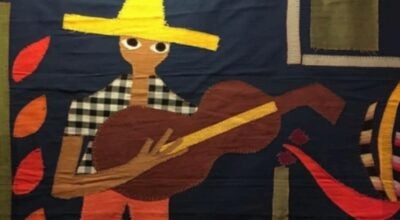McGraw murder trial nears end
Published 11:00 pm Tuesday, June 3, 2014

Defendant Travis McGraw took the stand Friday and Monday in his own trial for the murder of his wife, Vanessa Mintz at the Saluda Mountain Lodge on Feb. 19, 2011. (photo courtesy of CBS News)
The murder trial of Travis McGraw, accused of killing his wife, Vanessa Mintz in 2011 was nearing its end Tuesday afternoon as the defense rested its case.
Closing arguments were set to begin Tuesday at 1:30 p.m., where following, the jury would begin deliberations. The verdict was not known as of press time yesterday. Check www.tryondailybulletin.com for recent updates in the case.
On Tuesday morning, Superior Court Judge Tommy Davis denied motions from the defense to continue the trial as well as a defense motion for a mistrial. The mistrial motion came after an N.C. State Bureau of Investigation (SBI) agent testified that McGraw had come to take a polygraph. The judge denied the motion for a mistrial saying no testimony was given regarding if a polygraph even occurred or the results of an alleged polygraph. Davis also instructed the jury to disregard the mention of a polygraph.
Rebuttal testimony concluded Tuesday morning from the state with Federal Bureau of Investigation (FBI) special agent Michael Sutton, who specializes in cellular analysis.
McGraw testified that he went target shooting with his camouflage Mossberg 12-guage shotgun, the alleged murder weapon, the morning before the murder at an area near the Asheville Airport where he had permission to hunt.
Sutton said calls made from McGraw’s cell phone came from a tower near downtown Hendersonville. Sutton testified that the signals from the Hendersonville tower and the signals from the Asheville Airport area tower are separated by an impenetrable mountain.
Sutton said he concluded that in his expert opinion, McGraw’s phone could not have been in the Asheville airport area at the time of the calls. McGraw had testified he went shooting the morning of Feb. 18, 2011 around 9 or 9:30 and stayed about an hour. The cell phone calls the FBI analyzed were made at 9:09 a.m., 10:15 a.m., 10:16 a.m. and 11:34 a.m., according to Sutton’s testimony.
Following includes testimony made during the trial on Monday, June 2:
The state prosecutor on Monday, June 2 seized a rare opportunity to question a defendant accused of murder as McGraw was cross-examined after taking the stand in his own trial for the shooting murder of his wife.
Senior assistant district attorney Alex Bass shot question after question to McGraw, from text messages between he and his former girlfriend Mary Beth Fisher both before and after the murder, to what exactly McGraw did in the days before and after his wife was found murdered at the Saluda Mountain Lodge the morning of Feb. 19, 2011.
Near the end of McGraw’s cross-examination Bass asked McGraw at what point did he know money was missing out a cash drawer at the lodge. Bass had just asked McGraw when he found out Mintz was dead, with McGraw answering that Mintz’ father, Carl Mintz told him outside that, “she was gone.”
“At what point then, did you learn that the money was gone from the drawer?” Bass asked McGraw.
McGraw said he learned that when N.C. State Bureau of Investigation (SBI) agents told him when he was interviewed.
Bass verified that the interview was with SBI agents Steve Modlin and Jim Schandevel and occurred in room 102 of the lodge.
McGraw said he asked if the money was there and that he was under the impression it was gone at the time.
Bass, looking at reports, asked McGraw if he recalled the interview being at 2:39 p.m.
McGraw said it was in the afternoon but he didn’t recall exactly what time the interview occurred.
“Do you recall texting Mary Beth (Fisher) at 1:47 p.m.,” Bass asked McGraw.
Bass said McGraw’s text to Fisher at 1:47 p.m. said that if Fisher hadn’t yet heard, “someone broke in and robbed the cash drawer and killed (Mintz).”
McGraw’s attorney Tony Dalton asked McGraw to clarify when he knew about the cash drawer. McGraw said he learned it during the interview.
Dalton asked McGraw if he may have spoken to Mintz’ family members outside about the cash drawer being open.
“I don’t recall,” McGraw said. “I believe it was when I was speaking to agents when I first learned about it.”
Agent Schandevel was called back to the stand and questioned about what McGraw told him in the interview about the cash drawer.
Schandevel said McGraw remembered there was $210 left in the cash drawer and McGraw knew the bill count of exactly how many 20s, 10s and fives were in the drawer.
“Had you told (McGraw) money was gone?” Bass asked Schandevel.
“I was not aware (at the time) the money was gone,” Schandevel answered.
Dalton said to Schandevel that his notes don’t indicate that McGraw knew the money was missing. Dalton said McGraw knowing what was in the cash drawer isn’t surprising since McGraw was working the drawer during the night of the murder.
Bass also asked Schandevel and former Det. Sgt. Chuck Hitch with the Polk County Sheriff’s Office about McGraw’s testimony that he told them he went practice shooting with his shotgun on Feb. 18. Both Scandevel and Hitch testified McGraw never told them he went shooting the day before. McGraw testified Monday morning that a spent shell found on the floor of the murder scene could have fallen out of his pocket while he was changing clothes since he’d been shooting earlier that day.
“What if anything did the defendant say to you about having been shooting on Friday morning,” Bass asked Schandevel.
“Nothing at all,” Schandevel answered.
Bass also asked Schandevel if McGraw said anything to him that day about firing pins in shotguns. Schandevel answered that McGraw said nothing at all about firing pins and if he had it would have been very significant. Hitch testified the same, saying if McGraw had said anything like that he would have included that in his report.
The defense ended its testimony with McGraw’s mother.
Dalton later Monday called Dr. Wilkie Wilson, a neuropharmacologist and professor at Duke University who said McGraw taking Ambien could have affected him the night of the murder. Dalton motioned to continue the trial in order for the affects of Ambien, said to sometimes cause amnesia and strange behavior, to be investigated. Davis denied that motion on Tuesday so the defense rested its case.
Davis also on Tuesday reviewed instructions the court will give to the jury. He decided the jury will either decide McGraw is guilty of first-degree murder, second- degree murder or not guilty. First-degree murder is defined as the unlawful killing of a person with malice and with premeditation and deliberation. Second-degree murder is defined as the unlawful killing of a person with malice but without premeditation and deliberation.





